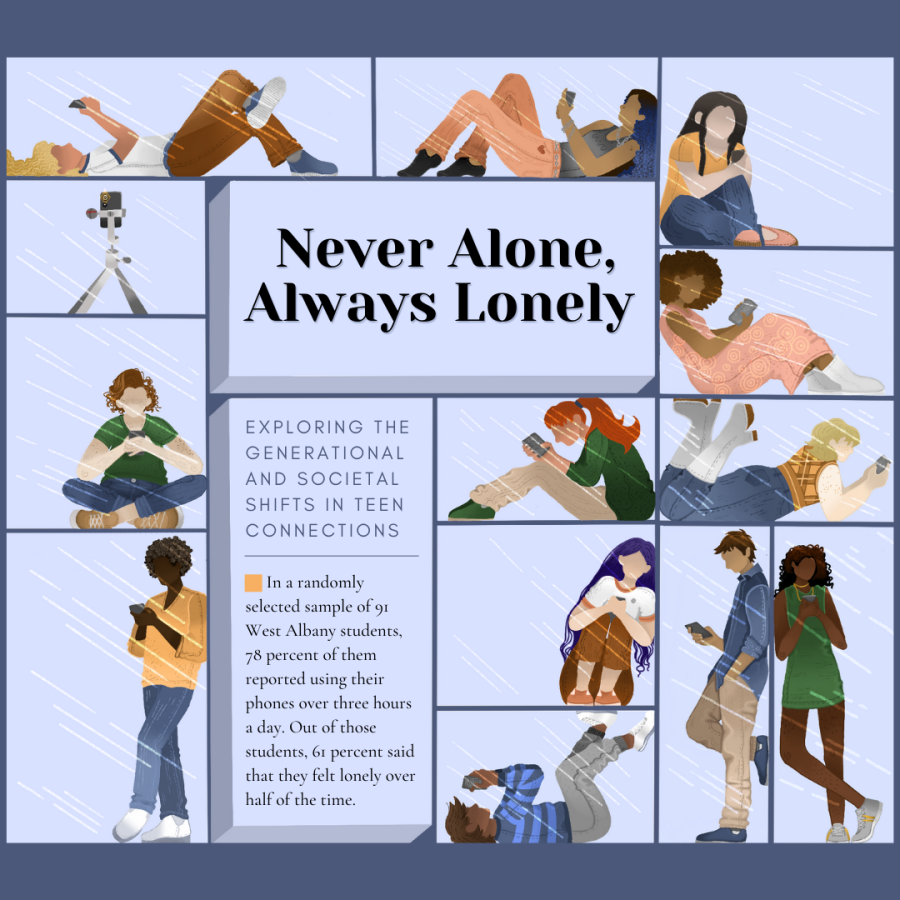Questioning whether she was religious or not, senior Bailey Filley decided to attend a youth group with her close friend. The stained glass and warm faces welcomed her as she entered the church. Yet nothing really clicked with her. Something seemed off.
“What they were telling me just didn’t resonate with me,” says Filley, recalling the days when she was discovering her spirituality. Pressure on Filley by her Christian parents was the main reason for attending, but there was also curiosity on her part. Six weeks later, she came to the conclusion that there was no connection between her and the church, and she just wasn’t drawn to the idea of being religious.
Religion has been one of the primary principles that have shaped our society today. Countries have risen and fallen, wars started and ended, all due to religious beliefs. Civilization now has been formed through past religious conflict. However, looking at the beliefs of the world’s younger generations, there is a growing religious divide between the youth and adults.
Filley started to drift away from the same idea of religion that the generations before her had believed in. She explored her spirituality and found that- well, she just didn’t feel connected to the idea of an organized religion. Much like Filley, many of the teens at West Albany see religion as something more casual, rather than a force that dictates a person’s life. A survey on students here at West Albany shows that 10.5% of students attend religious services only on holidays, and 19.7% of students attend religious services only a couple of times a year. Seeing religion as a single factor in one’s life instead of the entire reason and purpose for it is one thing that has widened the religious gap between the generations. This gap between parents and children has caused tension in some households, and acceptance in others.
“I’m Christian but I don’t take it as seriously [as my parents],” says junior Bobae Kim, who grew up attending a private school called Albany Christian. “My mom always says that Christianity is a religion that you can’t force people into, so it’s understandable that I’m not super religious like her.
While some teens choose to distance themselves from their religion, other choose to completely switch religions, converting from the way they were raised to a religion they arrived at on their own terms.
Sophomore Sage Nazarian practices the religion of Wicca, her sister is a Satanist, her mother is an atheist, and her father is Buddhist. She explains, “At first my parents were kind of skeptical because [Wicca] is kind of an odd religion, but they have been really supportive. And since our religions have different holidays, we all participate in each other’s holidays. My mom has even tried to participate in a couple of spells with me.” As diverse as their family may be, the Nazarians still find ways to celebrate their differences.
Other parents haven’t been so supportive. Website NextAvenue says, “For some parents with deeply held traditional beliefs, emotions run especially strong on this topic; They may criticize or even reject their children as punishment for not remaining in the fold.”
A junior, who wishes to remain anonymous, explains that they want to unaffiliated with a religion. Unfortunately, it’s caused conflict within their family. It, “puts a lot of tension [within my family] because I feel like I’m hiding all the time,” they said. “I told them once a year ago and they just flat out said, ‘no.’ They told me, ‘no, you don’t think that.'” Not much has changed since then. Their parents are a part of the Church of Jesus Christ of Latter-day Saints, and the anonymous source still attends church with them. After they move out, however, they predict they’ll make a lot of changes to their religious life. “I don’t have any other religion in mind, I just plan on kind of doing my own thing. Just figuring out what I want rather than what God wants for me,” they reflected.
The anonymous source is one of seventy eight percent of nonreligious individuals that shed their religious identity once they become an adult. Many of the reasons ranged from belief in science vs faith, “too many Christians doing non-Christian things,” and lack of evidence.
Teens all over the world are realizing what they want for themselves, instead of the path that has been clearly paved for them by past generations. There are cases where what kids want and what their parents want aren’t the same, but spiritual health is something younger generations are seeking out. In certain cases, that means drifting away from their family’s religion. Filley shares her words, “looking for what I wanted led me to further understand Christianity and religion, which is super important. But I don’t think we have to rely so much on it [religion] and put the pressure on ourselves.”



